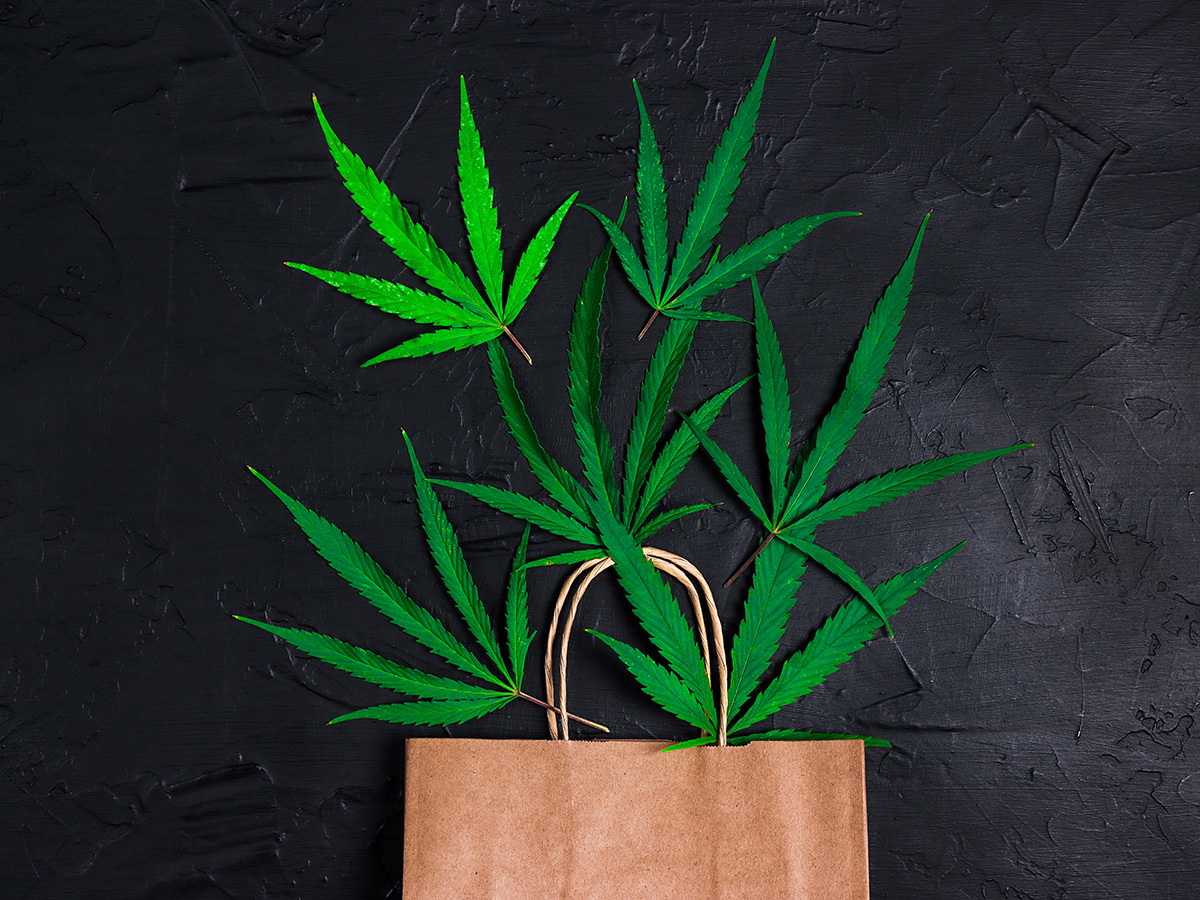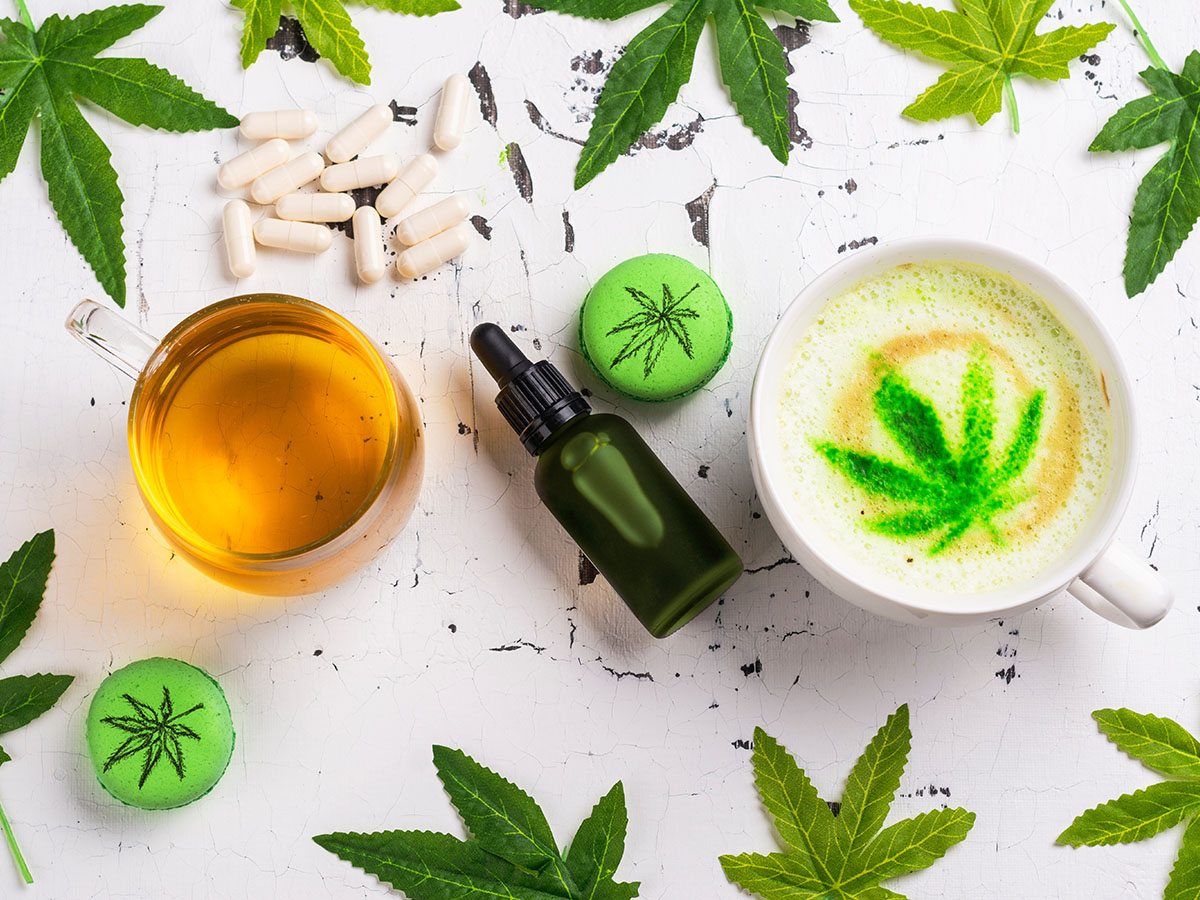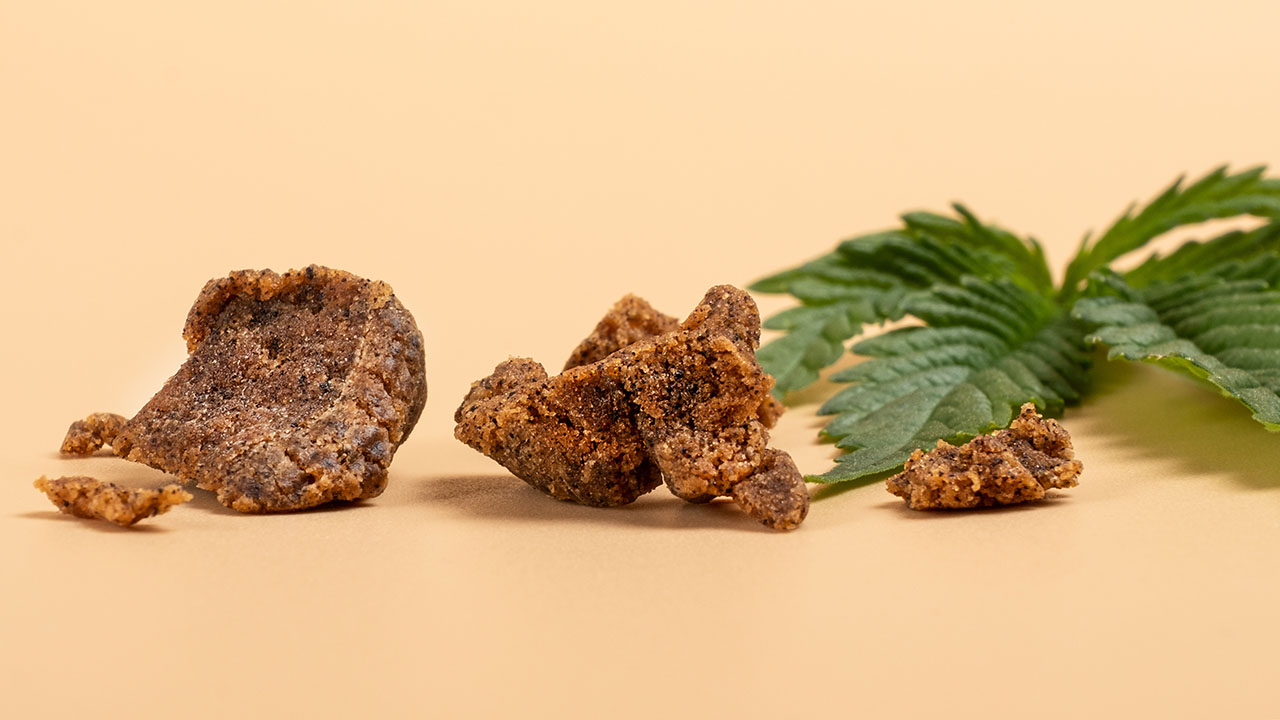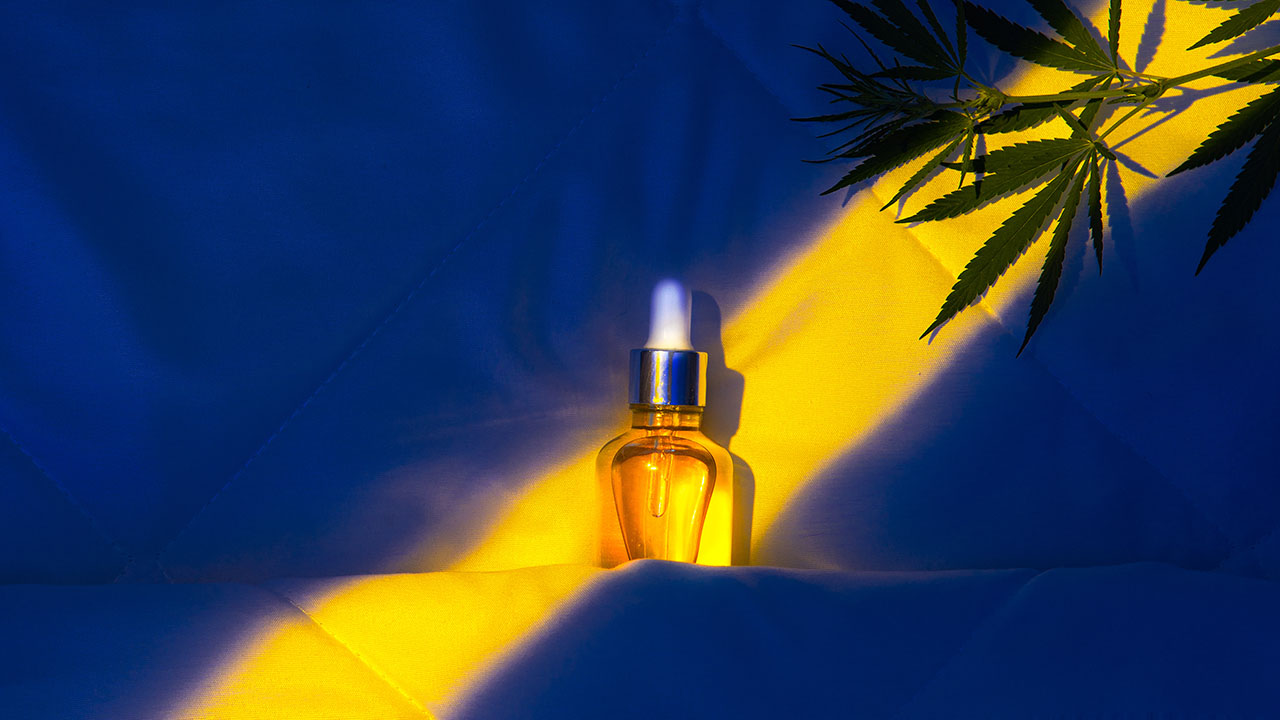
CBN vs CBD: Key Differences, Benefits, and Uses
September 08, 2025
CBD is one of the most well-known cannabinoids alongside THC, but another compound gaining attention is CBN. Both cannabinoids come from cannabis and may potentially offer therapeutic benefits, but they interact with the body in different ways. Understanding these differences can help you decide which may be better suited for your needs.
In this guide, we’ll break down their key differences, benefits, and uses.
High Points
- CBD and CBN are both naturally occurring cannabinoids, but they’re formed differently: CBD comes directly from the plant, while CBN is created as THC ages and breaks down. This difference shapes their unique effects and uses.
- CBD has a number of applications, with research suggesting its potential for easing anxiety, inflammation, pain, and even epilepsy. CBN is newer to the spotlight and is mostly associated with sleep support, mild pain relief, and relaxation.
- Availability and use differ between CBD and CBN. You can find CBD products in just about any retail store, while CBN is less common and usually found in dispensaries.
What is CBD?
CBD (or cannabidiol) is a commonly known, non-psychoactive cannabinoid that is found in abundance in the cannabis plant. It works with the body’s endocannabinoid system to provide an array of potential benefits that are still being studied. It’s one of the few cannabinoids that have been approved to treat certain medical conditions, and it’s the main ingredient in the first cannabis-derived medication approved by the FDA.1
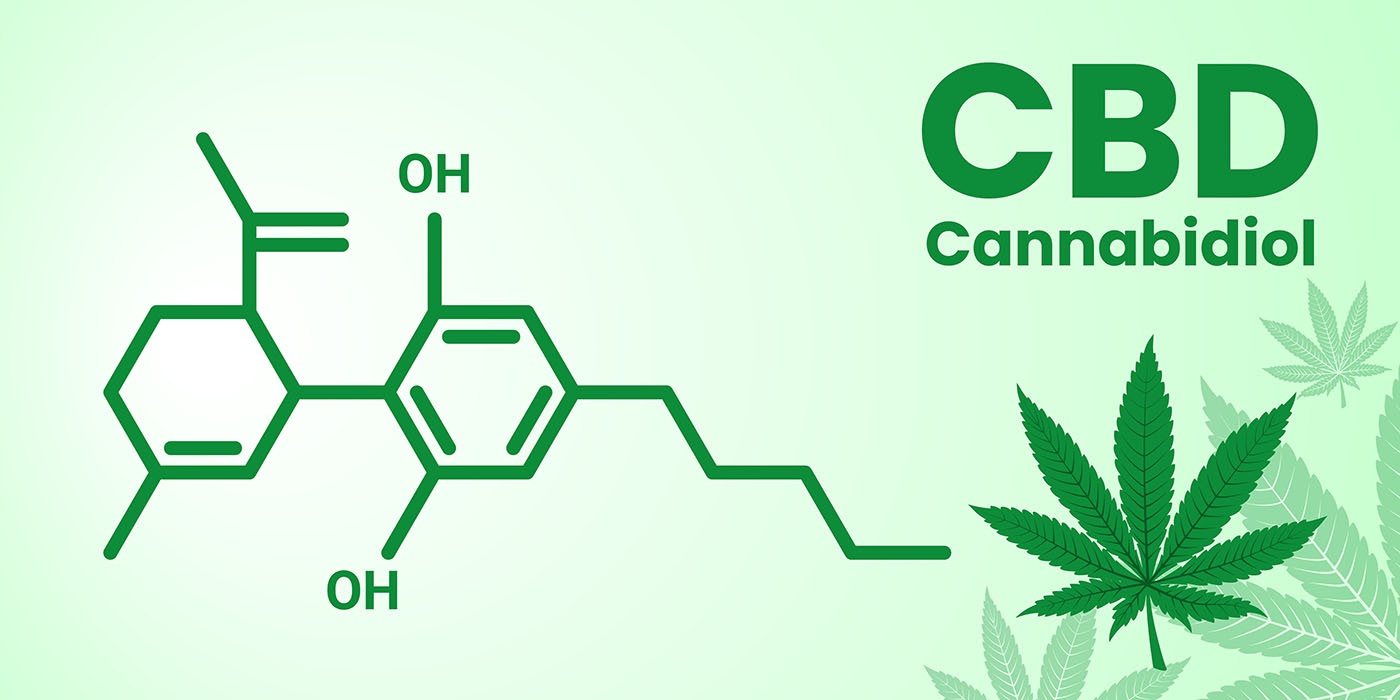
What Is CBN?
CBN (or cannabinol) is another cannabinoid found in cannabis plants, though it occurs in smaller quantities than CBD. Interestingly, CBN only forms when THC breaks down over time, usually as the plant ages or is exposed to heat and oxygen. Like other cannabinoids, CBN interacts with the body’s endocannabinoid system. CBN is known for its potential sedative effects, which is why it’s commonly associated with improving sleep. Though CBN is only mildly psychoactive, it’s much less intense than a THC high.2
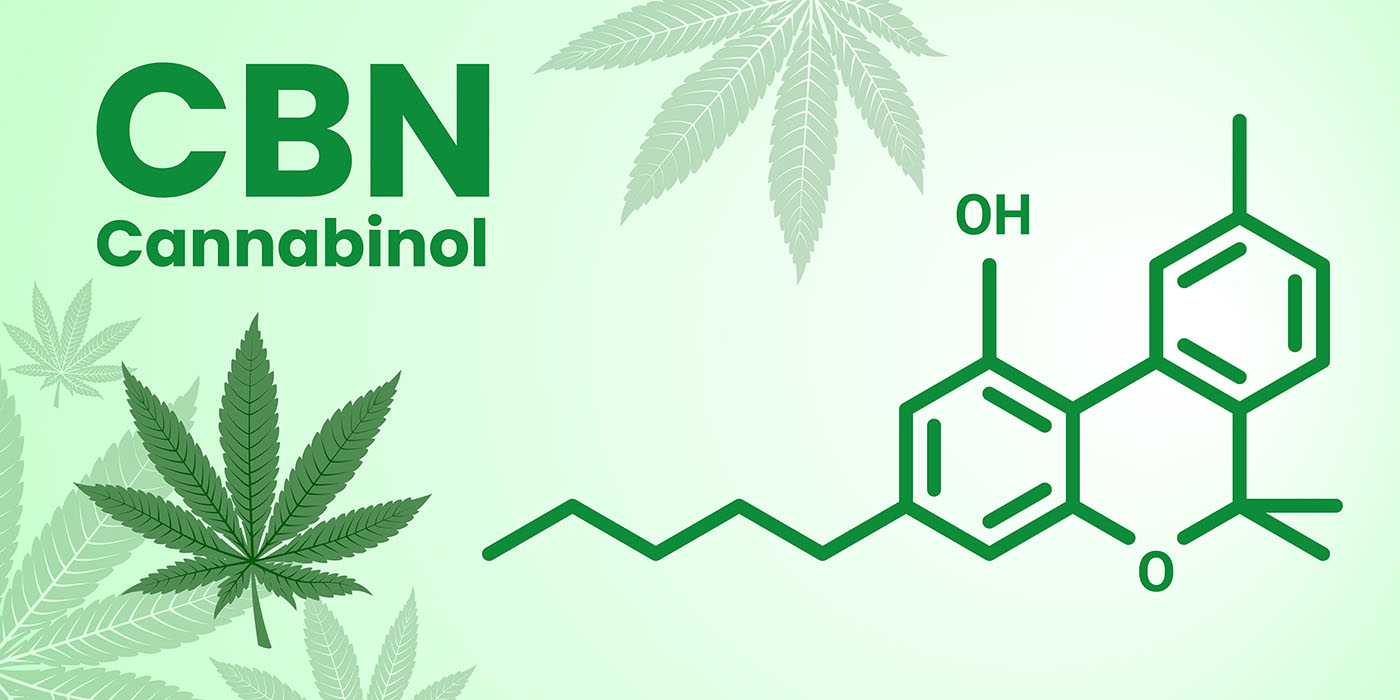
CBN vs CBD: Key Differences
While both CBN and CBD are cannabinoids derived from the cannabis plant, they have many differences. Here’s how CBD vs CBN compare:
Chemical Structure
CBN and CBD are very different when it comes to their chemical structure and how they are formed in the cannabis plant. First, CBD is a naturally occurring cannabinoid that begins as CBDA. Once it is decarboxylated–exposed to heat or light–it becomes CBD. This can also occur naturally or through combustion.3 CBN, on the other hand, is a byproduct of THC degradation. When THC is exposed to heat, light, or oxygen over time, it converts into CBN.4
This difference in how these cannabinoids are made impacts their molecular structure and contributes to their effects once they work with the body’s endocannabinoid system. Both CBN and CBD are 21-carbon compounds, but CBD has an open-ring structure that allows it to interact with the body’s receptors without causing psychoactive effects. CBN forms when THC’s closed-ring structure partially degrades, altering its molecular composition.4
Effects & Potential Therapeutic Applications
Both CBD and CBN interact with the body’s endocannabinoid for a variety of potential medical uses, but they may work best for different conditions:
- CBD is widely studied for its potential to alleviate anxiety, decrease inflammation, and manage pain. Additionally, evidence suggests CBD may benefit those who suffer from certain conditions like epilepsy, anxiety disorders, and chronic pain.5
- CBN is less researched but is gaining attention in cannabis and sleep research. Studies have shown it may help improve sleep and offer mild pain relief, especially for individuals dealing with insomnia or other sleep disorders.6
In some cases, CBN and CBD may be complementary, as their combined effects can potentially enhance the therapeutic benefits for conditions like pain and sleep disturbances.7
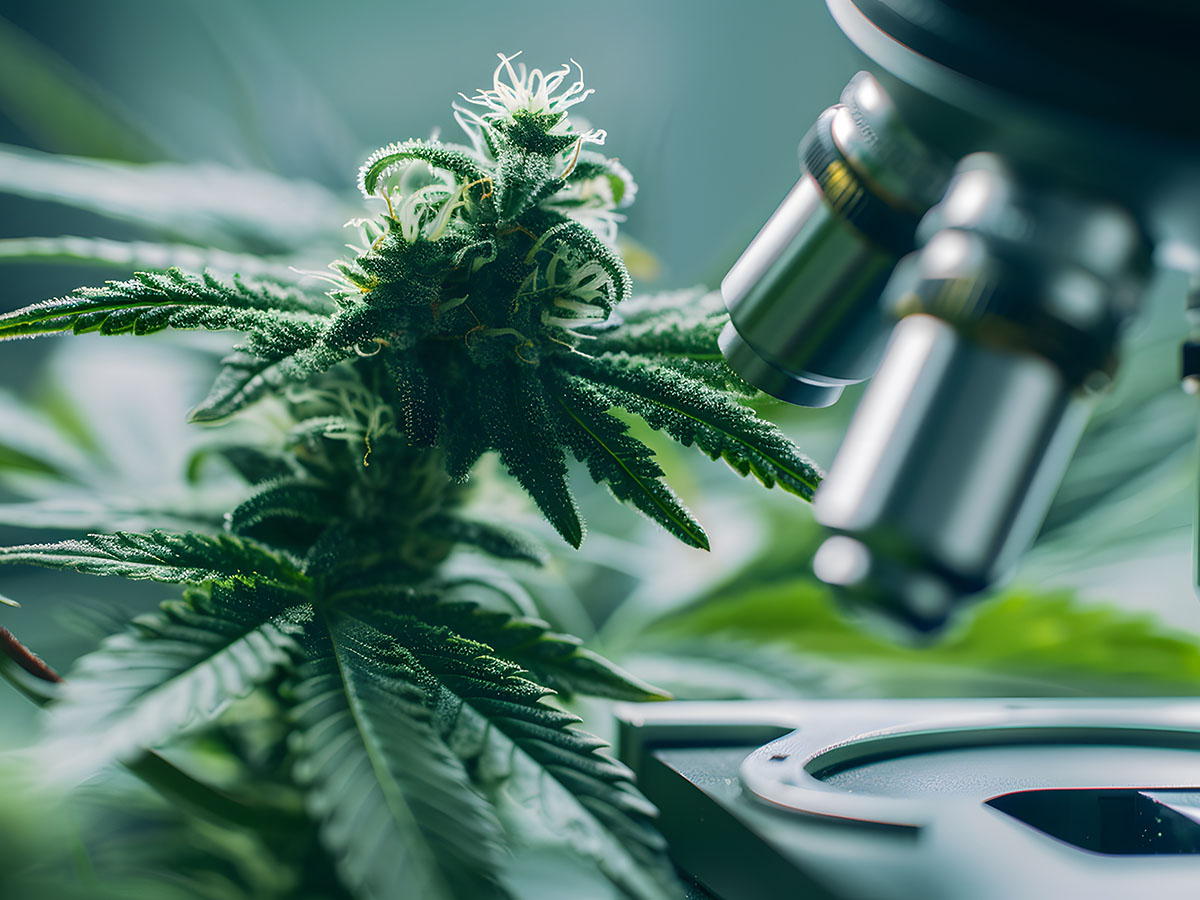
Psychoactive Properties
One of the key distinctions between CBN and CBD is their psychoactive effects—or lack thereof. CBD is entirely non-psychoactive, meaning it won’t cause any mental alterations or a “high” feeling. In contrast, CBN is mildly psychoactive because it is a breakdown product of the intoxicating THC. While the psychoactive effects of CBN are much weaker than THC, they are still there, so exercise caution when you use CBN-rich products.
CBD & CBN Consumption Methods
CBD is widely available and can be purchased in various forms, including oils, capsules, gummies, and topicals. CBN is less common, and CBN-rich products are still relatively new to the market.8
Here are the most common consumption methods for each cannabinoid:
- CBD: Oils, tinctures, capsules, gummies, creams, and vapes are the most popular ways to consume CBD. Dosing can vary based on the product, with oils and tinctures offering the most flexibility.
- CBN: Primarily available in oils, capsules, and sleep-focused products, CBN is often marketed as a nighttime supplement. Like CBD, it can also be found in gummies and other edibles. The dosage for CBN varies, but it’s typically aimed at promoting sleep or relaxation.
FAQs About CBD vs CBN
If you’re wondering how CBD and CBN stack up in terms of effects, usage, and availability, we’ve compiled some frequently asked questions to clarify the key differences.
Can you take CBN and CBD together?
CBN and CBD can be used together, and some cannabis products are formulated with both cannabinoids to provide complementary effects, specifically for sleep and pain relief.9
Does CBN have psychoactive effects like THC?
CBN has mild psychoactive effects, meaning it’s much weaker than THC. Since CBN is a degraded form of THC, it retains some intoxication properties.
Are CBN products as widely available as CBD products?
CBN products are less widely available than CBD products. However, with a growing interest in cannabinoid-based sleep aids, CBN is becoming more accessible.
Are there any conditions where CBN is preferred over CBD?
CBN is often preferred for sleep-related issues, while CBD is more commonly used for general wellness, anxiety, and pain relief.
How do CBN and CBD compare in terms of onset time and duration of effects?
The onset time and duration of CBN and CBD effects depend on the method of consumption. Typically, CBN products aimed at sleep may take longer to kick in but last longer, whereas CBD may provide quicker relief for issues like pain or anxiety.
Choosing Between CBN and CBD
When deciding between CBN and CBD, it’s important to consider your needs. CBD may be beneficial for daily wellness and anxiety management, while CBN may potentially be better suited for sleep issues. Both cannabinoids can also be used together for enhanced effects. If you’re unsure which to choose, consult your local budtender for personalized recommendations.
Sources
1. “Cannabidiol (CBD): What we know and what we don't,” Harvard Health Publishing, April 4, 2024, https://www.health.harvard.edu/blog/cannabidiol-cbd-what-we-know-and-what-we-dont-2018082414476
2. “CBN for Sleep,” Sleep Foundation, November 8, 2023, https://www.sleepfoundation.org/sleep-aids/cbn-for-sleep
3. “What is CBDA (cannabidiolic acid) & what are the benefits of this cannabinoid?” Leafly, January 25, 2021, https://www.leafly.com/news/cbd/what-is-cbda-cannabidiolic-acid-marijuana-cannabinoid
4. “CBD vs CBN: What’s the Difference?” Forbes Health, November 8, 2023, https://www.forbes.com/health/cbd/cbd-vs-cbn/
5. “CBD vs CBN: What’s the Difference?” WebMD, October 8, 2023, https://www.webmd.com/pain-management/cbd-cbn-what-is-difference
6. “Cannabinol (CBN; 30 and 300 mg) effects on sleep and next-day function in insomnia disorder (‘CUPID’ study): protocol for a randomized, double-blind, placebo-controlled, cross-over, three-arm, proof-of-concept trial,” National Library of Medicine, August 2023, https://www.ncbi.nlm.nih.gov/pmc/articles/PMC10450062/
7. “A double-blind, randomized, placebo-controlled study of the safety and effects of CBN with and without CBD on sleep quality,” National Library of Medicine, October 5, 2023, https://pubmed.ncbi.nlm.nih.gov/37796540/
8. “How Is CBN Different From CBD in Cannabis?” Leafwell, https://leafwell.com/blog/cbn-vs-cbd
9. “CBD vs CBN: Benefits and Differences,” Healthline, January 14, 2021, https://www.healthline.com/health/cbd-vs-cbn
Please consume responsibly. This product may cause impairment and may be habit forming. There may be health risks associated with consumption of this product. State laws impact what dispensaries can and can’t sell to recreational customers and medical marijuana patients. Not every type of product, consumption method, dosage form, or potency mentioned on this blog will be permitted in all locations.
